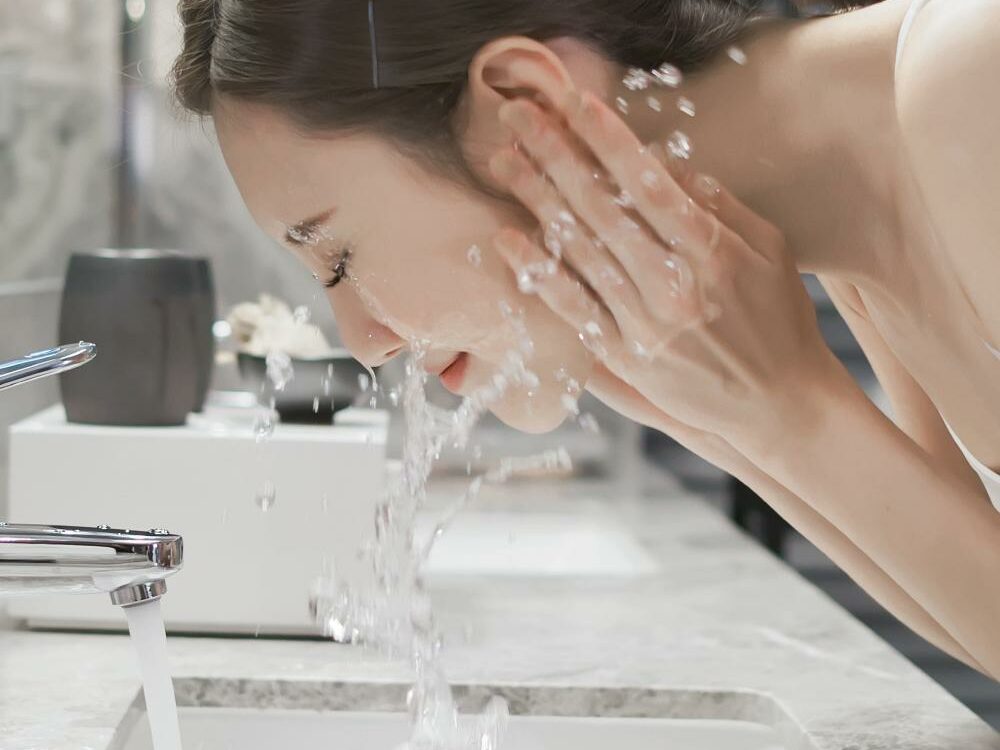Sebum Science
Sebum is the complex mixture of oils produced by sebaceous glands in our skin. Human sebum is very different to that of other mammals. We’re far from fully deciphering its roles in skin health, but we can be certain that it is crucial for optimum skin health.
The production of sebum is metabolically expensive – it takes a lot of energy to make. If there’s one thing we know about nature, it’s that it is not wasteful. Energy efficiency is brutally selected for by natural selection.
Why are we using high-foaming agents to strip sebum from our skin and wash it down the drain?
We’d like to change your mind
Perhaps you enjoy the “squeaky-clean” feeling after a deep cleanse, as many people do. We understand that engrained habits are difficult to break. Maybe we can make you reconsider your cleansing routine?
There are several problems with the beauty industry’s cleansing approach:
For one, sebum plays an important role in maintaining the barrier integrity of our skin. Without it, regulating the passage of substances across the skin’s surface becomes more difficult. This results in the loss of water and leads to dry skin, as well as allowing the penetration of pollutants and pathogens. Most routines then try to replace the lost sebum with other oils. We think this is ambitious, given that science is not even able to mimic the chemistry of sweat, never mind that of sebum.
Deep cleansing is not a remedy for skin oiliness. Removing oils from the skin’s surface simply forces our sebaceous glands to increase production, to replace what was lost. The constant regeneration of high-cost oils can’t be maintained for long, and over time, the quality of sebum declines. It’s better to avoid depleting the resources needed for high-quality sebum.
Finally, the lipids in sebum play an integral role in supporting healthy skin microbes. Healthy sebum cultivates the microbial species with which we have co-evolved. Fostering these intricate relationships benefits skin health in many ways. Constant cleansing results in poor quality sebum, that is available as a nutrient to a wide range of microbes, instead of feeding only tightly co-evolved skin commensals.
The microbial imbalance that follows a drop in sebum quality can contribute towards the development of several skin conditions, such as acne, rosacea, and dermatitis.
We should strive for the healthy balance designed by nature.
Cleansing the Esse way
We don’t pretend to be capable of out-performing millions of years of evolution. Instead, we believe it is best to avoid disrupting the balance your skin works to achieve. Our solution is to simplify your skincare routine.
A good place to start is to remove cleansing products from your morning routine. While you sleep, your sebaceous glands work to produce the sebum that keeps your skin moisturised. In the morning, you can preserve the resulting protective layer by simply forgoing the cleanser and rinsing with water. Sebum melts at around 32°C, and this makes it more prone to being washed away, so try to rinse with the coolest water you can manage.
The matter of evening cleansing is more complicated. If you wear make-up, foundation, or sunscreen, you’ll have to clean it off, and water may not be enough. In this case, try to avoid foaming cleansers and choose something mild and cream-based if you can.
Esse does offer foaming options because, although our understanding has shifted our view, we know that some of our customers are accustomed to this approach. We have kept even our foaming cleansers as mild as possible, but the fact remains that foaming agents mix with oils and allow them to be washed away. We don’t want to deny our customers the products they have grown to love but would like to encourage them to experiment with some of our other options and slowly make the transition.
Discover our range of microbiome-friendly cleansers.





